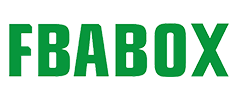NEWS
The Beginner's Guide to Launching a Successful Amazon FBA Business
Release time:2024-03-01 17:57
Introduction
Amazon FBA has revolutionized the way entrepreneurs approach e-commerce. With millions of active customers worldwide, Amazon offers a vast marketplace for novice sellers and seasoned e-commerce practitioners. But where do you start? This guide demystifies the process, providing you with a roadmap to launching your own successful Amazon FBA business.
Understanding Amazon FBA
What is Amazon FBA?
Fulfillment by Amazon (FBA) is a service that allows sellers to store their products in Amazon's fulfillment centers. Amazon then picks, packs, ships, and provides customer service for these products. Essentially, FBA removes the burden of logistics from sellers, allowing them to focus on scaling their businesses.
Key Benefits of Using Amazon FBA
Access to Prime Customers: FBA products are eligible for Amazon Prime, which means faster delivery for customers and better visibility for sellers.
Scalability: Amazon's vast logistics network can handle sudden spikes in demand, making it easier for businesses to scale.
Simplified Operations: Amazon handles the heavy lifting of storage, shipping, and customer service, simplifying operations for sellers.
Setting Up Your Amazon Seller Account
Choosing the Right Account Type
Individual Account: Best for sellers planning to sell fewer than 40 items per month. No monthly subscription fee, but a $0.99 fee per item sold.
Professional Account: Suitable for selling more than 40 items per month. It has a monthly subscription fee of $39.99 but no per-item fee.
Registering Your Seller Account
Creating your seller account requires providing basic business information, such as legal name, address, and tax information. Amazon's step-by-step registration process guides you through setting up your account, ensuring compliance and readiness to sell.
Researching and Selecting Your Niche
Importance of Market Research
Successful Amazon sellers start with thorough market research. Understanding customer needs, current trends, and gaps in the market can inform your product selection and positioning.
Tools and Techniques for Finding Profitable Niches
Amazon Best Sellers: Explore Amazon's Best Sellers list for inspiration and to gauge what's popular.
Keyword Tools: Use tools like Jungle Scout or Helium 10 to analyze search volume and competition for potential products.
Sourcing Products for Your Amazon FBA Business
Finding Reliable Suppliers
Whether sourcing locally or internationally, platforms like Alibaba and ThomasNet can connect you with manufacturers and wholesalers. Assess supplier reliability by reviewing their history, customer feedback, and product quality.
Tips for Negotiating Prices and Terms
Building a good relationship with suppliers can lead to better prices and terms. Don't shy away from negotiating to secure deals that benefit your business in the long term.
Creating Your Amazon Product Listings
Crafting Compelling Product Titles and Descriptions
Your product title and description should not only be informative but also keyword-optimized. This ensures your listings are discoverable by the right customers. Use natural language that incorporates keywords related to your product, without keyword stuffing.
Importance of High-Quality Product Images
High-quality images can significantly impact your conversion rates. Ensure your product images are clear, professional, and highlight key features of your product.
Launching Your Amazon FBA Business
Strategies for Your Initial Product Launch
Amazon PPC: Invest in Amazon's pay-per-click (PPC) advertising to increase visibility.
Promotions: Consider discounts or giveaways to generate initial sales and reviews.
Managing and Scaling Your Amazon FBA Business
Inventory Management Best Practices
Effective inventory management ensures you can meet demand without overstocking. Use Amazon's inventory management tools to keep track of stock levels and sales patterns.
Scaling Strategies
Expanding your product line and exploring new markets are viable strategies for scaling. Continuously optimize your listings based on customer feedback and sales data to improve performance.
Conclusion
Starting an Amazon FBA business is an exciting venture with the potential for significant returns. By following this guide, from understanding Amazon FBA to scaling your business, you're equipped with the knowledge to launch successfully. Remember, success on Amazon requires patience, experimentation, and continuous learning.

 Free Quote
Free Quote





